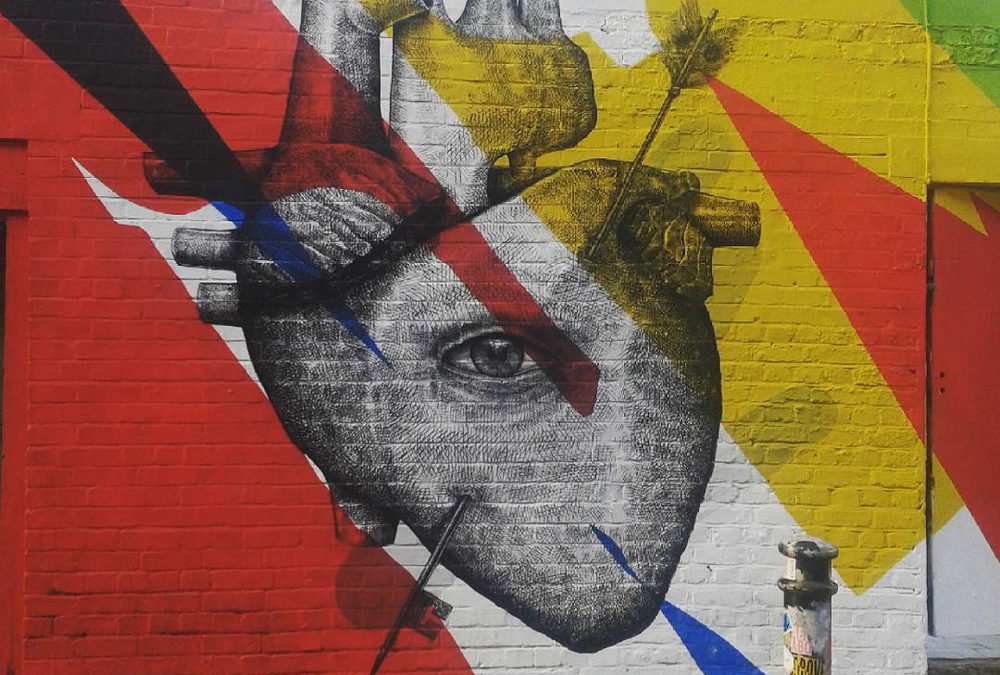I saw this graffiti image of a heart yesterday.
It made me think about the fact that in Ancient Egypt the heart represented truth rather than love. When you died they believed your heart would be weighed, and if it was light as a feather you would go through to a blissful afterlife, but if not you would be devoured by a god with the face of a crocodile. The feather was known as the feather of truth.
It’s interesting to think of the heart as representing truth. We ask people – “What do you feel in your heart of hearts?” meaning, what do you really feel – what is the truth? I find my heart keeps me honest. If I am conscious of lying or misrepresent the truth to my advantage, my heart starts to ache. And it’s my heart that often tells me if someone is sad – it starts aching way before I consciously know that they’re suffering. Then there are the times it beats faster and seems to connect with a stranger on the occasions I’ve met true friends (soulmates? heartmates?).
So perhaps the Egyptians were onto something!
A few years ago I was walking around the Fort in Jaipur and had my palm read. The palm-reader told me I should use my head less and my heart more. At the time, I thought that meant to go with my emotions rather than being rational. But if the heart is about truth, then though it might respond to emotion, it can provide deep wisdom and insights.
There are some really interesting experiments going on at the moment around the relationship between the head, the heart, and emotions. This wonderful documentary makes fascinating viewing, exploring whether it is the head or the heart that truly makes us human.
Our emotions are definitely reflected by the heart – just have a look at this heat map of the body. But it is happiness, love and pride that seem to affect the heart the most, and particularly love. So perhaps it’s love’s ability to win out in the heart over the other emotions that helps to provide us with truth.

